
Summary
The Setiu River is home to a population of the critically endangered river terrapin (Batagur baska). Each year during nesting season, local people wait along the river for nesting females to arrive on the sandbanks. Although the adult turtles are not taken, their eggs are collected and sold or consumed as a local delicacy that dates back generations. Eggs collection is presently legal in Malaysia. The problem is that wild populations of Batagur baska continue to decline on the Setiu River. Fewer and fewer females may be returning each year to nest, and local consumption of eggs is undoubtedly impairing the development of the next generation of nesting adults on the river.
The Setiu River Batagur baska Project started in 1999 and 2000 when several clutches of eggs, deposited on the banks of the Setiu River, were collected and hatched in captivity by scientists from KUSTEM University. The juveniles were raised for 3-4 years. In 2003, 75 of the young turtles were released back into the Setiu River. Drift nets were used to recapture the head-started juveniles between July and October of 2003.
In early 2004, local fishermen were hired to purchase eggs from collectors. The eggs are incubated in a controlled environment at KUSTEM University, not far from the Setiu River. The university plans to procure optimal numbers if eggs over the next ten years, head starting juveniles and staggering their release over a period of 1-6 years.
One of the aims of the head-starting component of the project is to determine the optimal age for release of juveniles. Mark and recapture efforts will focus on trying to determine what happens to the juveniles after their release.
Researchers also hope that trapping efforts will help them assess the status of wild populations of both Batagur baska and another high priority species living in the same area, the painted river terrapin, (Callagur borneoensis).
As a safety measure in case efforts to protect wild populations are unsuccessful, KUSTEM University plans to establish an assurance colony of Batagur baska in ponds located on the grounds of the university, using juveniles hatched and raised at the center as founding stock.




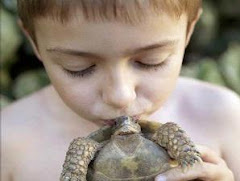





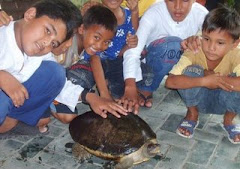













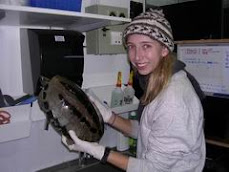



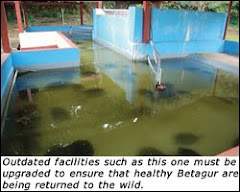.jpg)



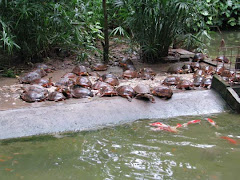
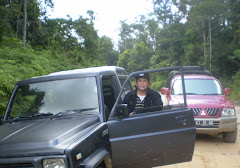
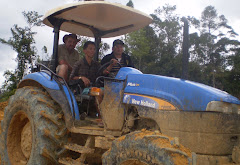
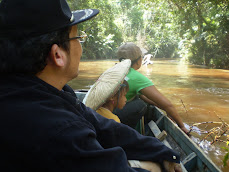
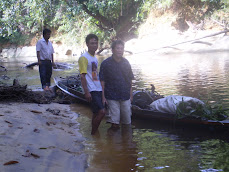













Tidak ada komentar:
Posting Komentar